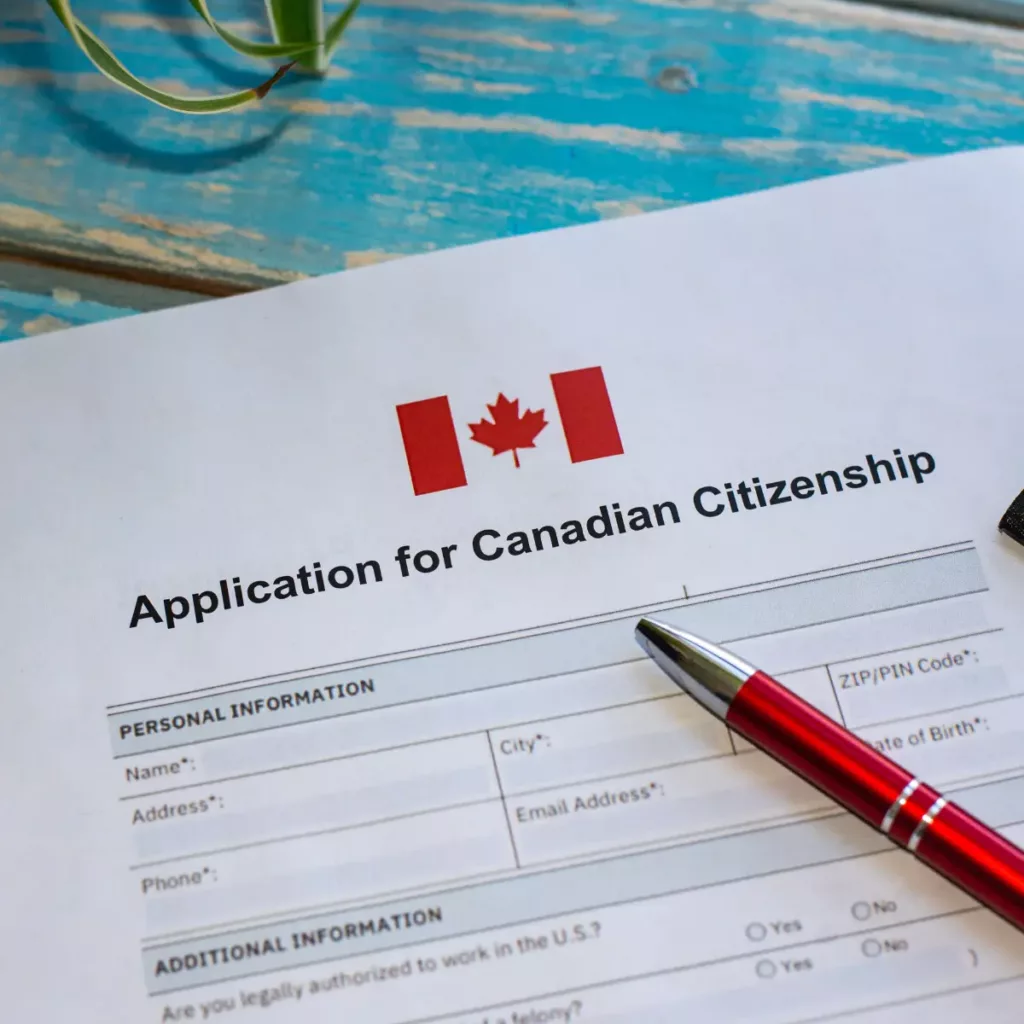Requirements and Procedures for Canadian Citizenship
Canadian citizenship refers to a lot more than a mere legal status; it is about truly belonging to a friendly, diverse nation that has the added advantage of presenting one of the most powerful passports in the world with visa waiver agreements in place for several nations globally.
For granting Canadian citizenship, applicants must go through the process of being considered whether they meet the requirements or not. The privileges that accompany Canadian citizenship include among others the right to participate in voting, receive social amenities, access healthcare services as well as obtain legal protection within the country. Acquiring citizenship signifies a major milestone towards an immigrant’s adjustment to the Canadian lifestyle in addition to playing his/her part in its growth.

What are the Canadian Citizenship pathways?
There are several pathways to Canadian citizenship:
1. Naturalization: immigrants can usually become citizens of their new country as a result of naturalization. Applicants must submit an official application to the IRCC and should meet the specified eligibility criteria. The committed candidates fulfill the Oath of Citizenship in Citizenship Ceremony and their Canadian Passport is still given by their Certificate of Citizenship.
2. Citizenship by Birth: Becoming a Canadian citizen is not a privilege, but a legal fact for all people born in Canada: immigration status of parents, or nationality, plays no role. The principle, Jus Soli (literally meaning the right of the soil), is the one according to which those born on Canadian territory are given citizenship.
3. Citizenship by Descent: Individuals that were born out of Canada are legal immigrants, if he/she was born to at least one parent who is a Canadian citizen. Citizenship by descent is a type of nationality that allows people to be Canadian citizens based on their Canadian-born descent parents.
4. Adoption-Based Citizenship: Particular adoption regulations might grant Canadian citizenship to the adopted children of Canadian citizens. The aspect of international adoptions has Canadian citizens going through the adoption process and additional tests that they are entitled to.
Find out if you are eligible to get in Canada →
Canadian Citizenship Eligibility for Permanent Residents
For one to become a Canadian citizen he/she has to have complied with the laid down requirements in the Act and Regulations as provided for by the law.
Key criteria include:
- Permanent Resident Status: Applicants must hold permanent resident status in Canada and demonstrate the residency requirement as explained below.
- Residency Requirement: In the last five years before their application, candidates must have physically lived in Canada for at least 1,095 days (that is three years). This requirement shows the applicant’s dedication to Canadian society.
- Language Proficiency: Applicants in the age group of 18 to 54 must prove their proficiency in either English or French by providing scores from the accepted language exams such as the Test d’évaluation de français (TEF) for French or the Canadian English Language Proficiency Index Programme (CELPIP) or International English Language Testing System (IELTS) for English.
- Canadian Knowledge Test: Candidates have to pass the Canadian Citizenship Test to show that they know about Canadian history, values, institutions, and symbols. The test is based on the knowledge of Canada’s political system, geography, citizenship rights and responsibilities, and multicultural heritage.
- Income Tax Compliance: In the five years before their application, applicants must have filed income tax returns for at least three taxation years to prove that they comply with Canadian tax regulations.
- Intent to Reside: After the citizenship approval, applicants must declare that they will live in Canada permanently and that they will participate fully in Canadian society.
How to Apply for Canadian Citizenship?
It is through a planned path that starts by collecting all essential papers, filling out application forms, attending language and knowledge tests, and finally, the citizenship ceremony is performed, that people become citizens of Canada.
Below is a complete guide on how to apply:
1. Gather Required Documents
You need to prepare some documents which include photocopies of identification, last year’s tax returns, and results from any language assessments taken.
2. Fill in Application Forms
An individual who has the necessary qualifications may submit their applications online using a logical and user-friendly process guided by the nature of the situation at hand
3. Application
The application form, having been filled in, and the supporting documents being ready, is then put online to IRCC, and the candidate pays for the required processing fee.
4. Citizenship Ceremony
When an applicant is approved, they go to the citizenship ceremony that is held by IRCC. In the course of the ceremony, supposed to take place, it is believed the candidates have to show the Oath of Citizenship; one must swear allegiance to Canada and assurance in following the laws, and values of Canada as well.
5. Certificate of Citizenship
The attestation of citizenship comes in the form of a Certificate of Canadian Citizenship. This certificate is issued immediately upon the successful completion of the said process: the Citizenship Ceremony.
Understanding the Canadian Citizenship First-Generation Rule
According to the first-generation Canadian citizenship rule, if at the time of birth, one or both people who gave birth to someone who was not born in the boundaries of Canada happened to be citizens of Canada, then such persons will be considered citizens of Canada too.
Claiming Canadian Citizenship for Second-Generation Children Born Abroad
Certainly, all offspring born in foreign countries to Canadian citizens of the second generation can avail themselves of Canadian citizenship by procedures established by law.
Obtaining Canadian citizenship depends on fulfilling certain requirements and undergoing a complex procedure set out in the Citizenship Act and Regulations. An applicant will go through this painstaking process of application—from maintaining status as a permanent resident and fulfilling residency obligations to proof of language ability and knowledge of Canadian history. When you become a Canadian citizen, it shows that you are ready to blend into the Canadian way of life, as well as engage completely in it; thus some things come with it that other people cannot buy because they are priceless as well. Anyone who understands them well enough and meets all stipulations given, such a person may start training themselves on how they might become better nationals hence contributing much more value to this nation as other cultures might also add something different.











